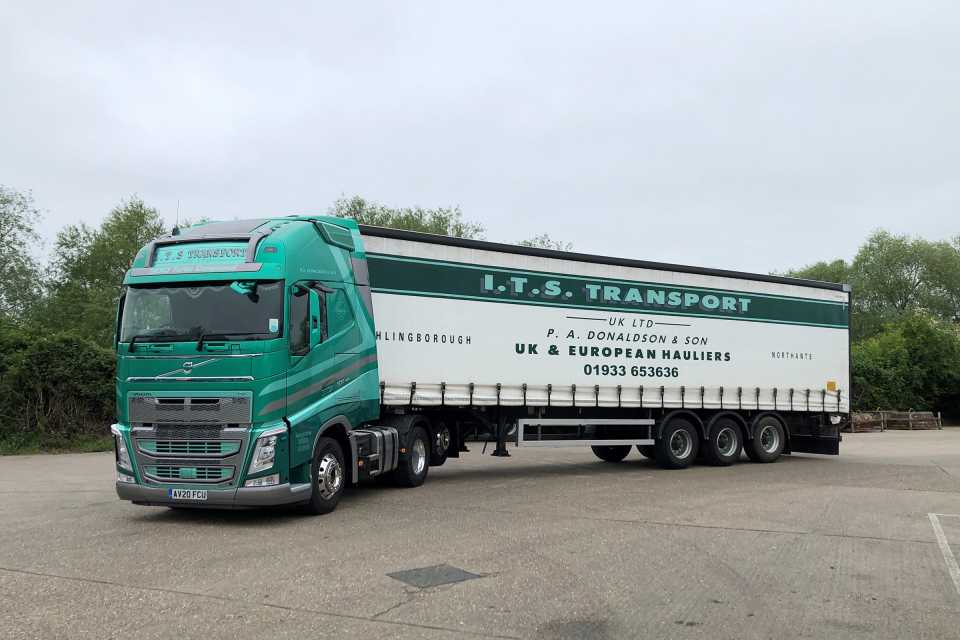Haulage specialist ITS Transport has taken delivery of a new Volvo FH tractor unit with I-Save features for more fuel-efficiency.
The D13TC Euro-6 Step D engine produces up to 300 Nm of extra torque, which means less acceleration and fuel is needed to keep a steady speed in motorway traffic.
David Donaldson, Transport Manager, at ITS Transport, says: “We considered a number of options when looking for our latest addition, but Volvo won the deal for its fuel efficiency and lower total cost of ownership.
“Our trucks cover a lot of ground, so we need the confidence they are going provide us with the best fuel efficiency on every single journey. Volvo’s turbo-compounding technology was a major pull for us and we’re looking forwardtoseeing the savings at the pumps.”
The new FH 6×2 tractor unit benefits from Volvo’s spacious Globetrotter cab and replaces an older vehicle from a rival marque. It joins the company’s 11-strong fleet, which already includes two older Volvos, all of which work across the UK and Europe.
Volvo’s D13TC turbo-compound engine features pistons with a patented wave-shaped interior that improves combustion and increases efficiency by guiding heat and energy to the centre of each cylinder. Excess energy in the exhaust gases are recovered to power the fly-wheel via an additional turbine in the exhaust flow, known as the turbo-compound unit.
Other features of I-Save include a new fuel-efficient rear axle, the Long Haul fuel package with an updated map-based I-See system – Volvo Trucks’ predictive cruise control system – that analyses and adapts to gradients ahead and includes gear-shifting software optimised for long-distance applications. The combined efficiency gains of I-Save can unlock fuel savings of up to 7% compared to a D13 Euro 6 Step D engine without I-Save engine and Long-Haul fuel package.
Source: https://greenfleet.net/
CUT COTS OF THE FLEET WITH OUR AUDIT PROGRAM
The audit is a key tool to know the overall status and provide the analysis, the assessment, the advice, the suggestions and the actions to take in order to cut costs and increase the efficiency and efficacy of the fleet. We propose the following fleet management audit.




